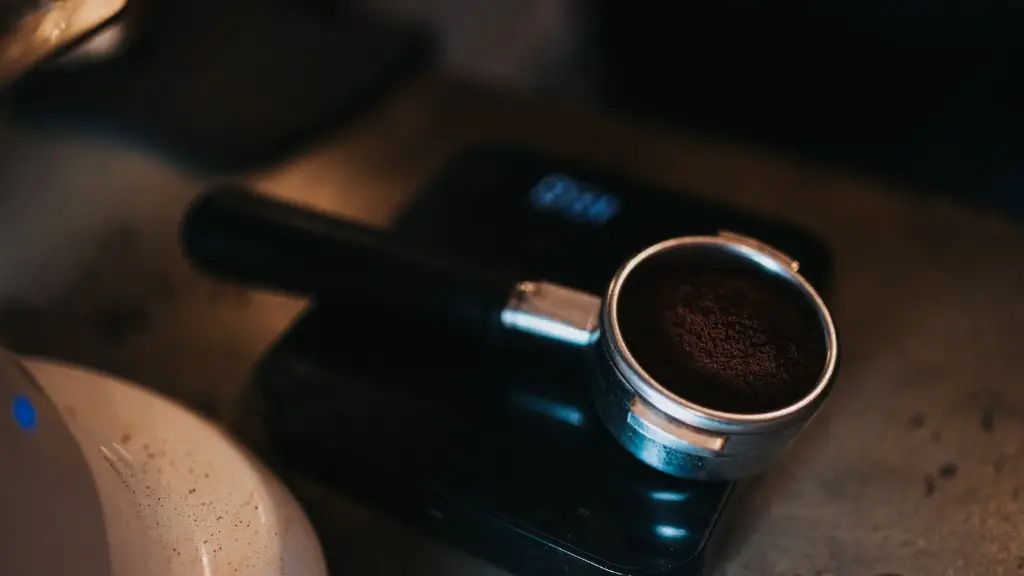It can be difficult to decide whether drinking coffee after a tooth extraction is safe. After an extraction, many foods and beverages can be painful, and coffee seems to be cause for special concern. Although it’s generally safe to enjoy a cup of coffee after a tooth extraction, drinking too much or too soon can have consequences.
The American Dental Association recommends that patients wait at least 24 hours after an extraction to drink coffee. This allows the blood clot to form properly and protect the healing area. Drinking coffee within 24 hours can prevent the clot from forming correctly, leading to increased discomfort, delays in healing, and a higher risk of infection or dry socket. If you must drink coffee, make sure to do so slowly in small sips.
In addition to the 24-hour waiting period, there are several other precautions you should take when drinking coffee after an extraction. Your dentist may recommend that you limit the amount of coffee you drink, as too much of it can reduce the effectiveness of oral pain medications and make it harder to manage discomfort. Avoid hot coffee, and if your mouth still feels sensitive after 24 hours, it’s best to wait to enjoy a cup until the discomfort has completely subsided.
Looking at the research, there isn’t much evidence that confirms coffee consumption causes a significant increase in post-extraction discomfort. However, the risk of a dry socket is higher in smokers who consume coffee than in non-smokers who don’t. So, smokers should be especially cautious with coffee consumption immediately after their extraction.
The verdict? It’s usually safe to have coffee after a tooth extraction, but you should make sure to follow your dentist’s instructions and give your mouth adequate time to heal before drinking coffee. It’s always best to check with your dentist first to make sure that coffee consumption won’t interfere with the healing process.
Caffeine and Dental Health
In addition to the issue of having coffee after a tooth extraction, there’s the broader issue of caffeine and dental health. Caffeine can stain the teeth, weaken the enamel, and leave bacteria in the mouth that can lead to bad breath and cavities. However, there are steps people can take to mitigate or lessen the negative effects of caffeine.
Brushing your teeth twice a day is essential to combating the staining and other oral issues that can be exacerbated by drinking coffee. Additionally, drinking plenty of water can help remove bacteria and astringent food particles from the mouth, as well as reduce dehydration and the tendency of the teeth to become stained easier. Chewing sugarless gum is also helpful, since it produces saliva which can help neutralize the acids and sugars in coffee.
It’s best to avoid any harsh abrasives when cleaning your teeth, as these can wear away parts of the enamel. Fluoride is also important as it helps protect the teeth from damage and staining. There are fluoride-based toothpastes and mouthwashes that can help strengthen the enamel, as well as professional treatments performed by your dentist.
Ultimately, while drinking coffee can have some adverse effects on your dental health, with proper hygiene and management, you can still enjoy a cup of your favorite java without wreaking havoc on your teeth.
Effects of Caffeine on Sleep
Caffeine can also have serious implications for overall health, particularly when it comes to the quality of your sleep. Caffeine stimulates the nervous system, so those who drink coffee and other caffeinated beverages close to bedtime often have difficulty falling asleep or staying asleep. Furthermore, caffeine can cause you to wake up feeling groggy and exhausted.
People vary in terms of how caffeine affects their sleep patterns, so it’s important to pay attention to your body and how it responds to caffeinated beverages. Cutting off caffeine consumption in the late afternoon can help prevent disruptions in sleep, allowing for a better night’s rest. Generally speaking, the closer it is to your bedtime, the less caffeine you should consume.
Additionally, you should be aware of how much caffeine you are consuming throughout the day. Too much of it can lead to anxiety, irritability, headaches, and other physical symptoms. Moderate consumption is key, and it’s important to be mindful of the amount of caffeine you are getting from other sources like chocolate, some medications, and energy drinks.
Although caffeine can provide a burst of energy and alertness during the day, the effects it has on sleep should not be overlooked. It’s important to understand how caffeine affects your body and to make sure to get sufficient sleep by limiting caffeine consumption.
Caffeine and Heart Health
Another issue to consider is caffeine’s effect on heart health. Caffeine has been found to increase heart rate, blood pressure, and risk of arrhythmia — an irregular heart rate. This means that drinking too much coffee can be dangerous for those who already have heart conditions or those who are at a high risk of developing one.
There is evidence that caffeine can increase longevity in healthy single individuals, provided they don’t drink too much coffee. It appears to be due to the antioxidant properties of caffeine and its ability to help lower the risk of chronic diseases. There is also evidence that caffeine might have a protective effect against stroke, Alzheimer’s, Parkinson’s, and some forms of cancer.
However, this does not mean that coffee drinking can offset the other adverse effects of unhealthy lifestyle habits, as it’s still important to get enough physical activity and eat a balanced diet. Too much caffeine can lead to insomnia, higher blood pressure, and even headaches, so it’s important to stay within the recommended daily intake. Moderate coffee consumption seems to be the key to heart health.
Caffeine Tolerance
Individuals can also become less sensitive to the effects of caffeine over time. This means that they need to consume more coffee in order to reach the desired effect, and this can lead to increased tolerance and addiction. Caffeine addiction can lead to increased heart rate, tremors, restlessness, dehydration, irritability, and other physical and mental issues.
When it comes to drinking coffee, moderation is key. It’s important to pay attention to how much caffeine you are consuming each day, as well as how coffee affects your body. Keep an eye out for signs of tolerance and addiction and make sure to consult your doctor if you experience any concerning health issues.
Caffeine, Addiction, and Withdrawal
Caffeine addiction can have severe effects on one’s health, so it’s important to seek professional help if needed. It’s also important to be mindful of how much caffeine you consume and how it affects you. It’s not uncommon to experience irritability, headaches, and other physical symptoms after cutting back on caffeine. This is completely normal, since caffeine affects the body’s dopamine levels, and the sudden decrease can feel unpleasant.
Changing your lifestyle and habits can help you manage your caffeine intake. Drinking more water and exercising regularly can help reduce your dependence on caffeine. Gradual withdrawal is also important in order to avoid severe symptoms. Cutting back gradually can help mitigate headaches and other physical symptoms that usually accompany caffeine addiction and withdrawal.
Ultimately, it’s important to pay attention to how much caffeine you are consuming and how it affects you. When using caffeine, it’s best to do so in moderation. If you do find yourself addicted to caffeine, it’s important to seek help and make sure to cut back gradually in order to lessen the physical and mental side effects.





